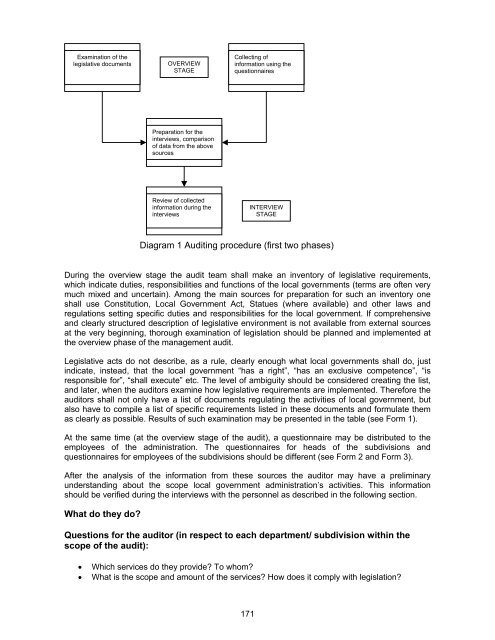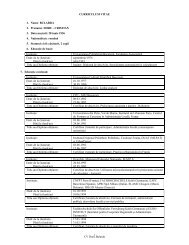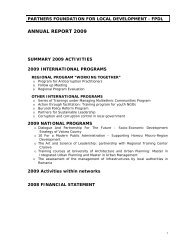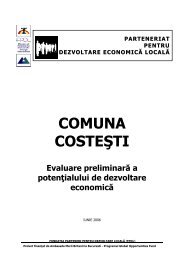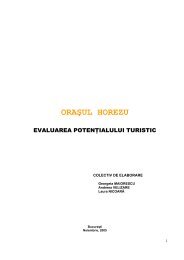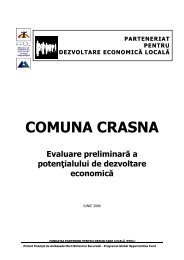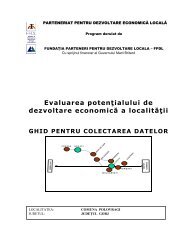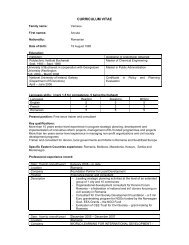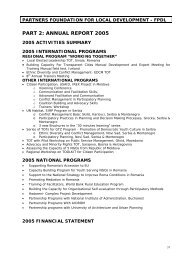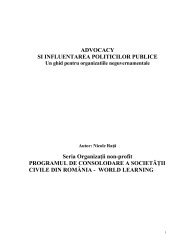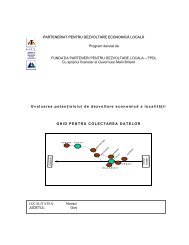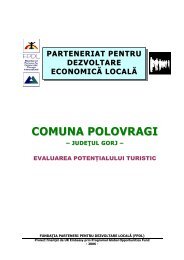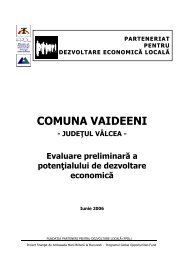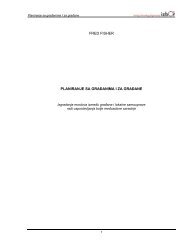Organizational Development: A Manual for Managers and ... - FPDL
Organizational Development: A Manual for Managers and ... - FPDL
Organizational Development: A Manual for Managers and ... - FPDL
You also want an ePaper? Increase the reach of your titles
YUMPU automatically turns print PDFs into web optimized ePapers that Google loves.
Examination of the<br />
legislative documents<br />
OVERVIEW<br />
STAGE<br />
Collecting of<br />
in<strong>for</strong>mation using the<br />
questionnaires<br />
Preparation <strong>for</strong> the<br />
interviews, comparison<br />
of data from the above<br />
sources<br />
Review of collected<br />
in<strong>for</strong>mation during the<br />
interviews<br />
INTERVIEW<br />
STAGE<br />
Diagram 1 Auditing procedure (first two phases)<br />
During the overview stage the audit team shall make an inventory of legislative requirements,<br />
which indicate duties, responsibilities <strong>and</strong> functions of the local governments (terms are often very<br />
much mixed <strong>and</strong> uncertain). Among the main sources <strong>for</strong> preparation <strong>for</strong> such an inventory one<br />
shall use Constitution, Local Government Act, Statues (where available) <strong>and</strong> other laws <strong>and</strong><br />
regulations setting specific duties <strong>and</strong> responsibilities <strong>for</strong> the local government. If comprehensive<br />
<strong>and</strong> clearly structured description of legislative environment is not available from external sources<br />
at the very beginning, thorough examination of legislation should be planned <strong>and</strong> implemented at<br />
the overview phase of the management audit.<br />
Legislative acts do not describe, as a rule, clearly enough what local governments shall do, just<br />
indicate, instead, that the local government “has a right”, “has an exclusive competence”, “is<br />
responsible <strong>for</strong>”, “shall execute” etc. The level of ambiguity should be considered creating the list,<br />
<strong>and</strong> later, when the auditors examine how legislative requirements are implemented. There<strong>for</strong>e the<br />
auditors shall not only have a list of documents regulating the activities of local government, but<br />
also have to compile a list of specific requirements listed in these documents <strong>and</strong> <strong>for</strong>mulate them<br />
as clearly as possible. Results of such examination may be presented in the table (see Form 1).<br />
At the same time (at the overview stage of the audit), a questionnaire may be distributed to the<br />
employees of the administration. The questionnaires <strong>for</strong> heads of the subdivisions <strong>and</strong><br />
questionnaires <strong>for</strong> employees of the subdivisions should be different (see Form 2 <strong>and</strong> Form 3).<br />
After the analysis of the in<strong>for</strong>mation from these sources the auditor may have a preliminary<br />
underst<strong>and</strong>ing about the scope local government administration’s activities. This in<strong>for</strong>mation<br />
should be verified during the interviews with the personnel as described in the following section.<br />
What do they do?<br />
Questions <strong>for</strong> the auditor (in respect to each department/ subdivision within the<br />
scope of the audit):<br />
• Which services do they provide? To whom?<br />
• What is the scope <strong>and</strong> amount of the services? How does it comply with legislation?<br />
171


